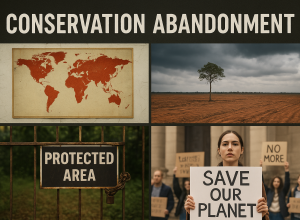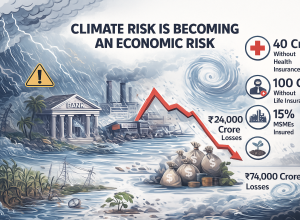The global climate crisis demands more than incremental change; it requires a fundamental reimagining of how we produce, consume, and power our world. At the forefront of this seismic shift stand companies transcending mere compliance to become true champions of green technology and holistic sustainability. These organizations are not just deploying clean solutions; they are embedding environmental and social responsibility into their core DNA, redefining supply chains, pioneering disruptive technologies, and proving that profitability and planetary stewardship are not mutually exclusive but intrinsically linked. Their journeys, grounded in verifiable action and measurable impact, illuminate the path toward a genuinely sustainable future. Driven by a potent combination of ethical imperative, investor pressure, consumer demand, and regulatory tailwinds like the EU’s Green Deal and CBAM, these vanguards are demonstrating scalable solutions across diverse sectors, transforming ambition into tangible reality through relentless innovation and unwavering commitment.
In the critical realm of renewable energy generation and transition, Ørsted stands as a paradigm-shifting exemplar. This Danish powerhouse has undergone one of the most radical corporate transformations witnessed, evolving from Danish Oil and Natural Gas (DONG) to a global leader exclusively focused on renewables. Their audacious commitment is reflected in achieving a 94% reduction in scope 1 and 2 emissions since 2006 (validated by the Science Based Targets initiative – SBTi), with a firm target to become carbon-neutral by 2025, encompassing their entire energy generation and operations. Ørsted is not merely building wind farms; they are pioneering biodiversity protection measures like artificial reefs around turbine foundations and investing heavily in Power-to-X technologies, exploring green hydrogen and e-fuels to decarbonize harder-to-abate sectors like shipping and aviation. Their leadership extends beyond their own operations, actively engaging suppliers to reduce emissions across their value chain, understanding that true sustainability demands systemic change. Similarly, NextEra Energy, through its subsidiary NextEra Energy Resources, has become the world’s largest generator of renewable energy from wind and solar, boasting over 34 gigawatts (GW) of installed capacity as of Q1 2024 and a staggering development pipeline exceeding 20 GW. Their strategic investments in battery storage – deploying over 3 GW globally – are crucial for grid stability as intermittent renewables proliferate, showcasing an integrated approach to the clean energy transition. Their ambitious “Real Zero” goal targets eliminating all scope 1 and 2 emissions by 2045 without relying on offsets, a testament to their commitment to genuine decarbonization, backed by massive capital expenditure plans exceeding $85 billion for 2023-2026 focused on renewables and grid modernization.
The transportation sector, a major emissions source, is being revolutionized by champions like Tesla, whose impact extends far beyond popularizing electric vehicles. Tesla’s core mission accelerates the shift to sustainable energy, evidenced by deploying over 20 Terawatt-hours (TWh) of cumulative clean energy generation and storage through its solar panels and Powerwall/Powerpack/Megapack batteries as of 2023. Their relentless focus on battery technology – reducing cobalt content, increasing energy density, and driving down costs – has been instrumental in making EVs accessible. While facing scrutiny over its own supply chain, Tesla actively sources responsibly, publishing annual Impact Reports detailing mineral sourcing and recycling efforts, and its Gigafactories increasingly utilize on-site solar and aim for high levels of renewable energy use. Their vertically integrated approach, controlling battery production and software, allows for rapid innovation cycles crucial for scaling sustainable transport. Complementing vehicle electrification is the critical need for sustainable logistics, where Maersk is making bold strides. The global shipping leader has committed to achieving net-zero greenhouse gas emissions by 2040, a decade ahead of the initial IMO industry target. Their tangible action includes ordering 25 dual-fuel vessels capable of running on green methanol, with the first already operational, and securing partnerships to scale green fuel production. Maersk is actively exploring ammonia as another zero-emission fuel pathway and heavily investing in optimizing vessel operations through AI for route and speed optimization, significantly reducing fuel consumption even with conventional fuels while the green fuel infrastructure scales. Their Eco Delivery product, offering customers carbon-neutral transport using sustainable biofuels, demonstrates market-driven solutions, with volumes growing exponentially year-on-year.
The technology hardware sector, grappling with resource intensity and complex global supply chains, finds leadership in companies like Apple. Apple’s ambition is profound: to make every product carbon neutral by 2030, encompassing its entire global supply chain and product lifecycle. This requires monumental effort, and progress is tangible. They have achieved 100% renewable electricity for their global corporate operations since 2018 and are driving their vast manufacturing network – over 300 suppliers as of 2023 – toward the same goal, with commitments covering over 16 gigawatts of renewable energy online. Apple is pioneering material innovation and circularity: the latest Apple Watch models incorporate 100% recycled cobalt in batteries and 100% recycled gold in plating and wire, the MacBook Air with M3 features 50% recycled plastic and 100% recycled aluminum in the enclosure, and they are utilizing recycled rare earth elements across components. Their disassembly robots, like Daisy and Dave, and growing network of Material Recovery Labs aim to close the loop, targeting eliminating mining altogether through advanced recycling and material substitution. Patagonia, while an apparel company, operates with the ethos and impact of a green tech champion, particularly in material science and supply chain ethics. Its self-imposed “Earth tax,” the 1% for the Planet commitment, has donated over $200 million to environmental groups since 1985. Patagonia relentlessly innovates with recycled materials (over 87% of their line used recycled materials in Fall 2023), organically grown cotton (eliminating pesticides since 1996), and regenerative organic certified practices to rebuild soil health. Their radical transparency through the Footprint Chronicles traces materials back to farms and factories, holding themselves and suppliers accountable. Most significantly, founder Yvon Chouinard transferred ownership to a Purpose Trust and non-profit in 2022, ensuring all company profits fund climate and conservation efforts, structurally embedding planetary health above shareholder returns – an unprecedented corporate model prioritizing sustainability as its core fiduciary duty.
The enablers of circularity and resource recovery are equally vital champions. Redwood Materials, founded by former Tesla CTO JB Straubel, tackles the looming challenge of end-of-life batteries head-on. Their mission is to create a closed-loop domestic supply chain for critical battery materials. Their hydrometallurgical process recovers over 95% of the critical metals like lithium, cobalt, nickel, and copper from end-of-life batteries and manufacturing scrap, significantly reducing the need for environmentally damaging virgin mining and enhancing supply chain security. Redwood is rapidly scaling its Nevada operations and expanding into South Carolina, partnering with major automakers (Ford, Volkswagen, Toyota) and battery producers (Panasonic) to secure feedstock and supply recycled materials for new batteries, aiming to produce anode and cathode components with a drastically lower carbon footprint than virgin materials by 2025. In the realm of industrial decarbonization, H2 Green Steel is a pioneering force demonstrating disruptive green tech. Utilizing hydrogen produced via electrolysis powered exclusively by Sweden’s abundant renewable electricity, they are building the world’s first large-scale green steel plant in Boden. This process eliminates the fundamental need for coking coal, the source of ~90% of the steel industry’s CO2 emissions. Their offtake agreements with major manufacturers like BMW, Mercedes-Benz, and Siemens (representing over 7 billion Euros in future revenue by 2030) underscore the market demand for truly green primary steel. Their model offers a blueprint for decarbonizing one of the world’s most carbon-intensive industries, proving the technical and commercial viability of green hydrogen in heavy industrial processes.
These champions, while diverse in their sectors and strategies, share common threads: audacious, science-based targets validated by organizations like SBTi; radical transparency in reporting progress and challenges; deep integration of sustainability into core R&D and business models, not peripheral CSR; pioneering collaboration across value chains to drive systemic change; and a willingness to invest heavily upfront for long-term planetary and economic resilience. They navigate complex challenges – scaling green hydrogen and SAF, ensuring ethical mineral sourcing, perfecting large-scale recycling, managing Scope 3 emissions across sprawling networks – but their progress is demonstrable and accelerating. Their leadership proves that the green tech revolution is not just about generating clean energy but about fundamentally transforming how we build everything, from the molecules upwards, creating a circular, equitable, and truly regenerative economy. They are not merely participants in the sustainability movement; they are its architects, demonstrating through concrete action that a thriving future for business is inextricably linked to a thriving planet. Their continued innovation and scaling efforts represent humanity’s most promising engine for achieving a net-zero, nature-positive world.





